Creeptober Day 27: The Vanishing (1988)
The Vanishing shakes up the Creeptober marathon, and it very well might leave you shaken as well.
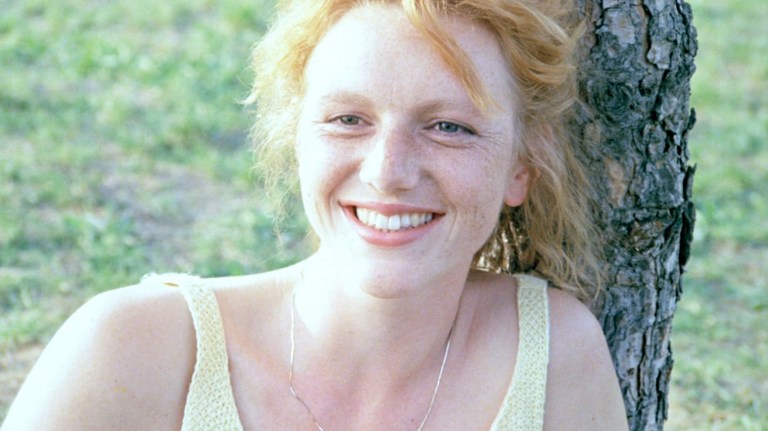
Day twenty-seven of Creeptober is a different kind of horror than the previous few days of the marathon. Grounded, sad, and insidious, The Vanishing is a psychological thriller that explores the effects of loss, and it’s a chilling choice as we head into the final days before Halloween.
Read on for our thoughts on The Vanishing (1988) as well as a recap of the movie, and join the conversation on our Facebook, TikTok, and Instagram!
Reacting to The Vanishing
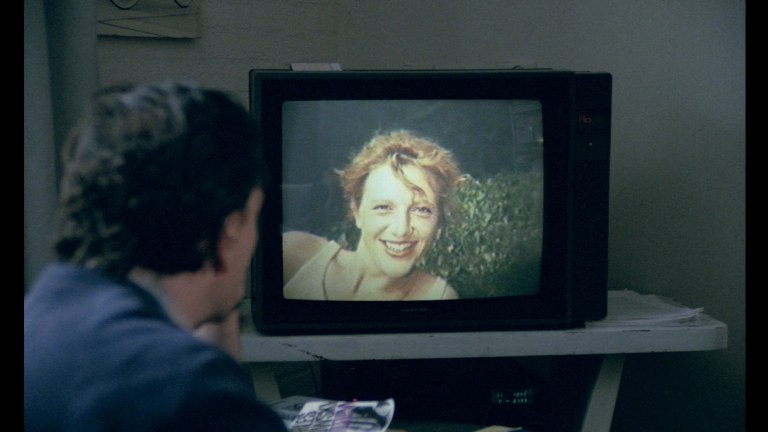
The Vanishing is a different kind of horror than what we’ve been focusing on over the past few days of Creeptober. After the campiness and excess of the previous few days, The Vanishing is a drastic change of pace. Maybe that’s why it hit me so hard.
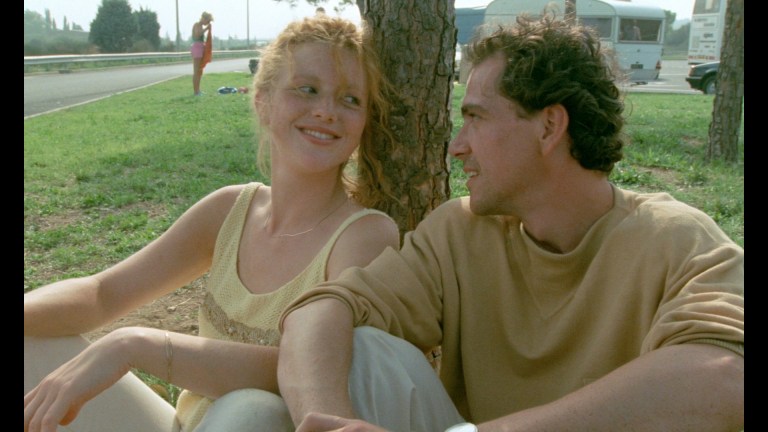
The Vanishing is insidiously chilling. When you see the title of the movie, you know what it’s about. Someone vanishes, obviously. But it’s the way the story is constructed that makes it so effective. It’s not that the plot is complicated. It’s actually quite straightforward, and maybe that’s what makes it feel so real and emotional. It’s about two people in love and on vacation, and then one of them is just gone. Saskia vanishes, and other than a few vague clues, her trail is completely cold. There is no trail. Nothing. It’s unsettling because it’s a plausible scenario depicted in a way that focuses on the loss rather than the abduction itself. Where there once was love, now there is simply nothing. And, sadly, Rex fills that void with obsession.
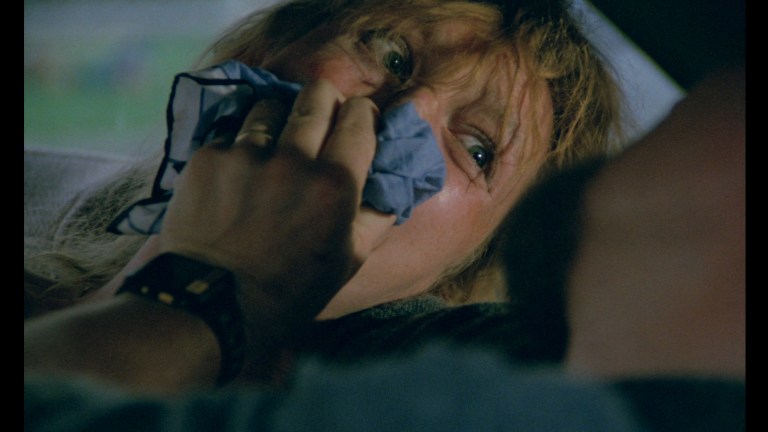
To me though, the most chilling part of The Vanishing is when we are forced to revisit the day Saskia disappears. When she gets into Raymond’s car and he uses the chloroform on her, I felt myself tearing up. I knew her abduction was coming. I knew it had to happen because it already had happened. But it still affected me greatly. If I knew what the movie was about, and if I’d already been prepared to see the kidnapping happen, then why did I react like that? Looking back, it’s because of the smart way the film presents the chronological order of events.
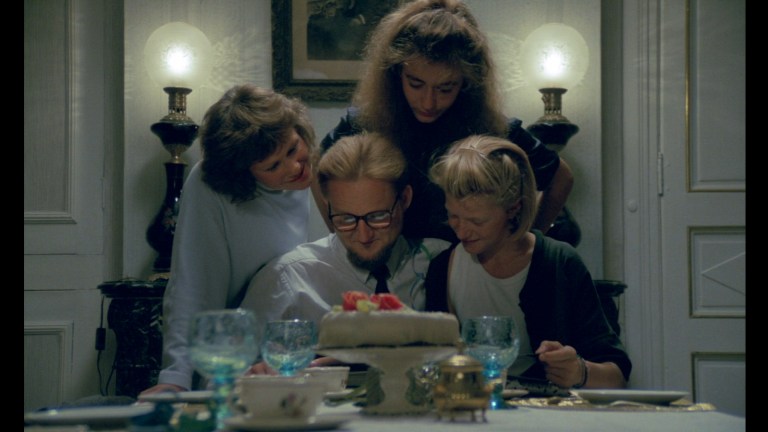
After the initial sequence where Saskia disappears at the rest stop, we go back in time and get to know Raymond. We see a man with a family who, in secret, is planning an abduction. Why? We don’t know yet. But we watch him prepare as if he’s studying for a test or practicing for a business presentation. It’s also like a hobby for him. If we didn’t know what his ultimate goal was, it would all appear to be the painfully normal actions of a family man seeking leisure activities separate from his family. Some alone time, perhaps to unwind away from the stress of work, a wife, and two kids. And though Raymond is never portrayed as sympathetic or even likable, seeing him try, and fail, and try again at the very least makes him seem human. He’s not a one-dimensional villain.
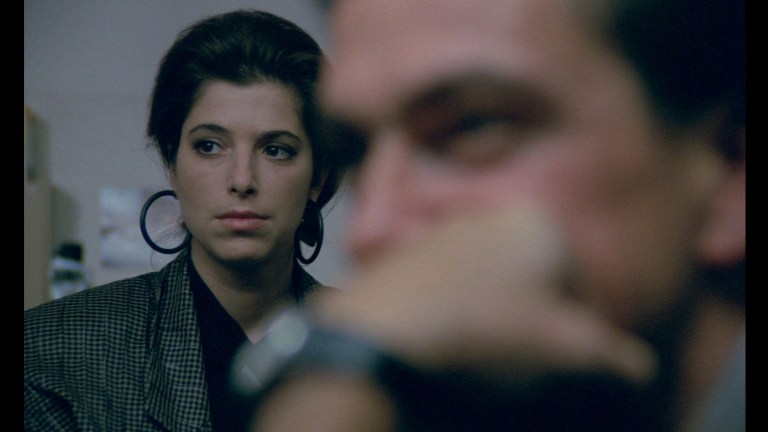
Then we get to know Rex. He’s a man who can’t let go of the past, and his dedication (or obsession, if you prefer) to finding out what happened to Saskia is ruining his life. It’s also affecting the one person who cares for him, Lieneke. Rex telling Lieneke that he would choose to go back to that day at the rest stop rather than be with her is heartbreaking. He even admits in that moment that it’s not even about Saskia anymore. He would choose Lieneke if he found Saskia, but the past is where he’d ultimately rather be. It’s incredibly sad, and it can make it difficult to completely side with Rex since he’s being so hurtful towards Lieneke. We can sympathize with him, but his actions are clearly taking a toll on his current girlfriend.
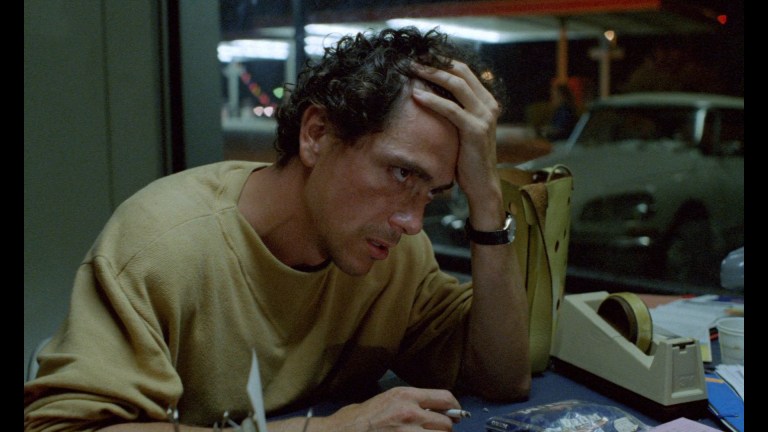
Then these two characters—the humanized “villain” and the broken “hero”—come together and we finally learn what happened on that day at the rest stop. By now, knowing what we know about Raymond and Rex, it makes Saskia’s kidnapping so much more painful. For Raymond, Saskia could be any woman. She doesn’t matter to him; he’s only interested in the act itself. As for Rex, we know that Saskia’s loss affects him terribly, but afterward, his search won’t really be about her either. The search is more for his own closure rather than actually finding her (which, in a sense, is a way of moving on after a tragedy, but Rex fails to truly move on).
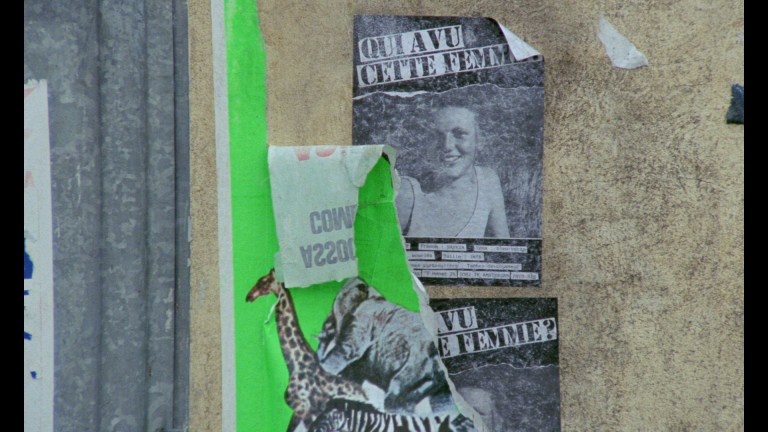
So when we see Saskia abducted in a flashback after getting to know these two men involved in her disappearance, the overwhelming emotion is emptiness. If we had seen Raymond take Saskia early in the movie, before we got to know him, it would likely have felt more infuriating and terrifying. But by placing this pivotal moment towards the end of the movie rather than at the beginning, it leaves a hollow sense of sorrow more than anything else. By going back and forward in time and showing us the lives her vanishing affected, the moment of abduction is completely recontextualized. As I was thinking about it, it reminded me of my reaction to seeing Gaspar Noe’s Irreversible (2002) for the first time. That movie is far more brutal in tone than The Vanishing, but the heartache caused by forcing us to look at characters and actions from a different perspective is similar across both films. It’s smart, and it’s effective.
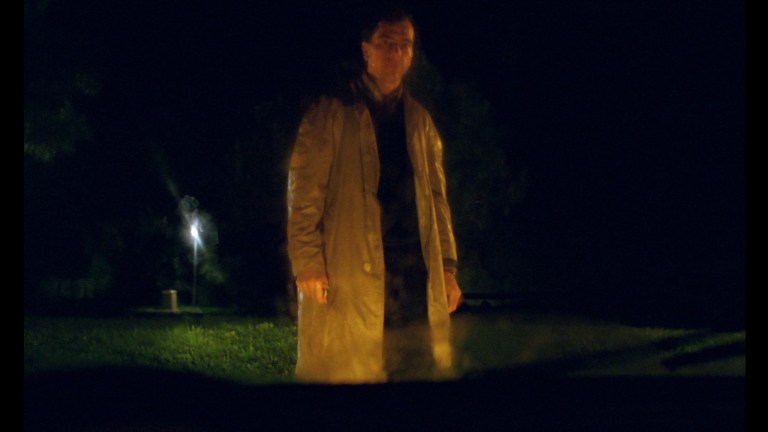
I also think that Raymond philosophizing on determinism has something to do with the strong reaction I had to the movie. Coincidentally, I recently watched a debate between Neil deGrasse Tyson and Charles Liu about free will, and hearing Raymond talk about jumping off of a balcony to go against predestination struck a chord with me. Rex does it too, saying he drank the drugged coffee to avoid predestination. Neither of these moments are actually making cases against predestination, or fate, but the structure of the movie actually tells us everything we need to know. Or at least, it gives us insight to the viewpoint of the filmmakers.
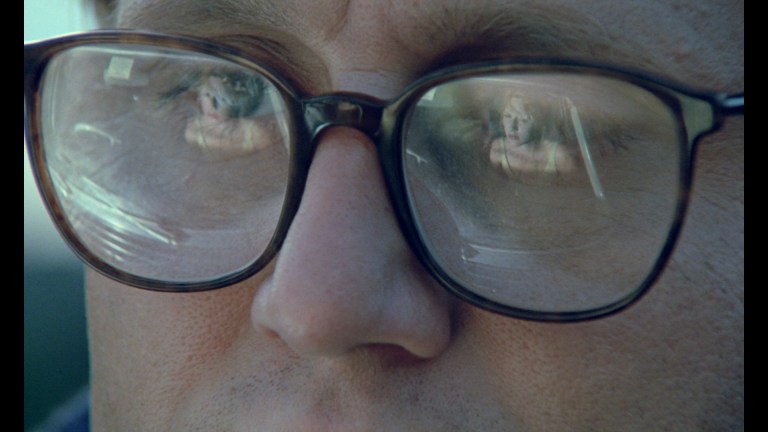
By not showing us Saskia’s actual abduction until late in the movie, her kidnapping is unavoidable. It will happen, because it has already happened. Up until that moment when we see Raymond drug her, we could fool ourselves into imagining that she possibly just left Rex. Or maybe she got away from Raymond and decided to live on her own. Rex’s bicycles were missing after all, maybe she took one and rode away. We could think up a hundred possibilities, but in our heart we know that none of them could be true. Saskia is predestined to be taken. She is fated to vanish. It is utterly unavoidable, and we knew it from the first scene in the movie, but we don’t have to accept it until near the end when we are forced to finally experience it.
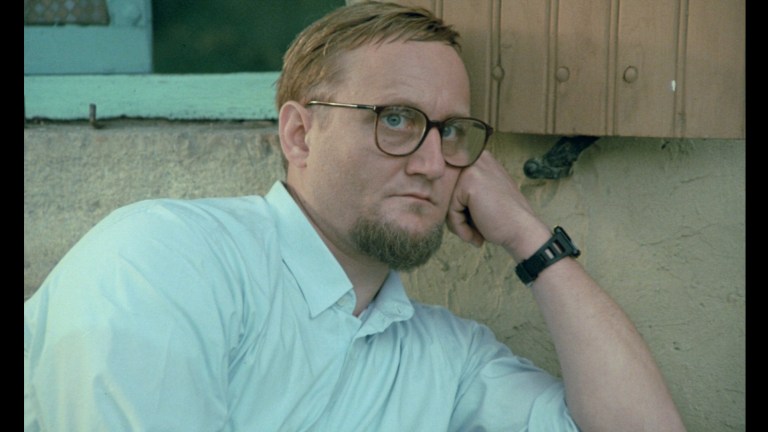
What does Saskia’s fate say about predestination? It says we have no choice. What will happen, will happen. The look on Raymond’s face at the end of the movie—when he’s staring blankly at nothing while his family goes about their business around him—says it all. He thought he was smart enough to change fate. But his planned abduction worked not because of his training. Not because of his intelligence. It worked because of a series of unrelated events the led him to that place, at that time. It worked because his name happened to start with an “R” just like Rex, and because his daughter gave him a keychain with an “R” that Saskia liked. It worked because his wife gave him a box of tiles that he could pretend were keychains to lure Saskia into his car. Raymond realizes that Saskia’s kidnapping was fate, and he was an instrument of that fate. For Raymond, the loss of his perception of control recontextualizes his entire life up to that point, and it fills him with a sense of loss as well. An overwhelming emptiness.
The Vanishing – A Recap
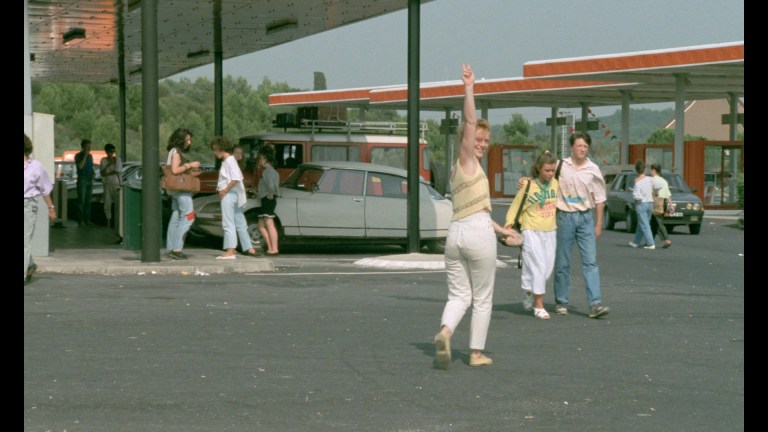
A couple from Amsterdam, Rex and Saskia, take a detour while driving on vacation in France. Their car runs out of gas while in a long, dark tunnel. When leaving on foot to get fuel, Rex frightens Saskia by leaving her behind. When Rex returns, Saskia is at the other end of the tunnel, looking angry and hurt by Rex’s callousness. They drive to a nearby rest stop where they happily make up. Rex promises to never abandon Saskia again. Rex waits by the car while Saskia goes inside the rest stop’s shop, but he doesn’t see her come back out. Rex searches the area and asks about Saskia. He doesn’t find her.
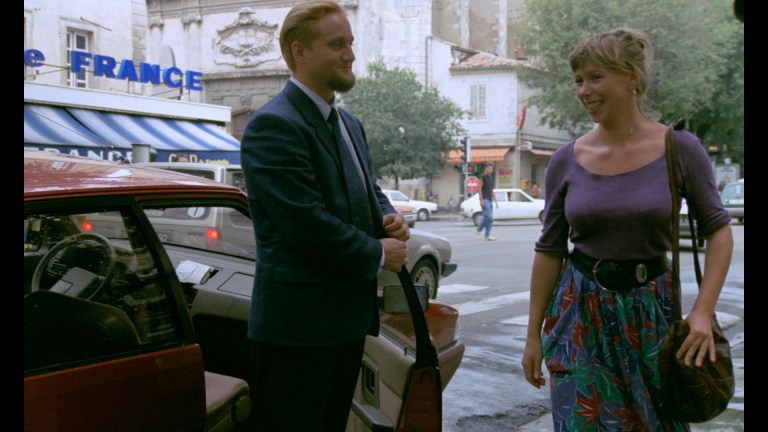
Earlier, a man named Raymond (who was seen at the rest stop wearing a fake cast), plans and rehearses how he would abduct a woman. His preparations keep him away from his family—a wife and two daughters—who suspect he has a mistress. He assures them that he isn’t seeing anyone else, though he secretly tries and fails to abduct a woman. Then he goes to a rest stop, and he sees Saskia…
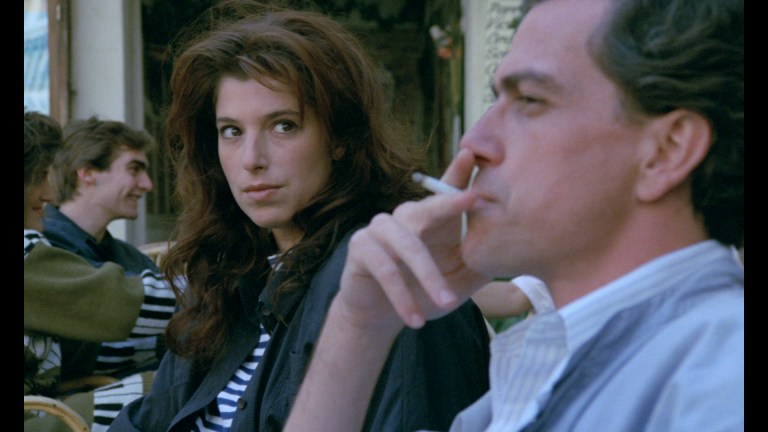
Jumping forward three years, Raymond sees a missing person poster with Saskia’s picture. Rex is seeing someone new, Lieneke, but he hasn’t given up searching for Saskia. Raymond knows about Rex, and he’s been sending him postcards (using fake names) saying he wants to meet. Rex always shows up, but Raymond doesn’t. Instead, Raymond watches Rex from afar.
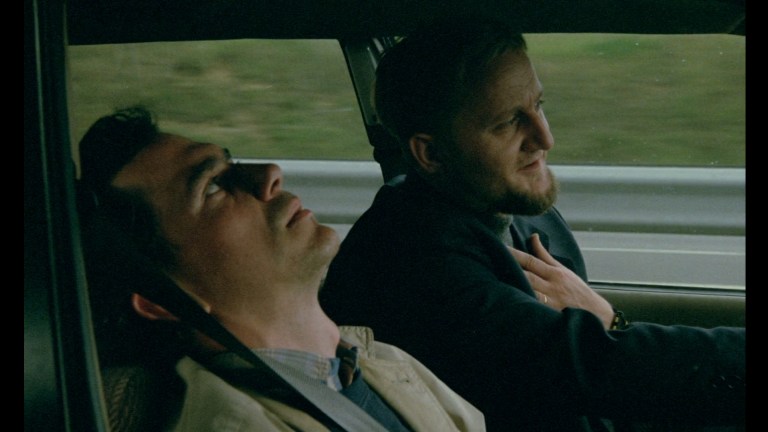
Rex is interviewed on television where he makes a plea for Saskia’s kidnapper to meet with him. Rex says he doesn’t hate the kidnapper, he just wants to know what happened to Saskia. His obsession drives Lieneke to leave him. After Lieneke leaves, Raymond approaches Rex and introduces himself as the kidnapper. He offers Rex the chance to find out what happened if he goes with him to France, on the condition that if Rex says anything to anyone, he’ll never find out what happened to Saskia. Rex gets into Raymond’s car.

During the car trip, Raymond talks about how he is a sociopath. He talks about being called a hero after saving a young girl from drowning, but he didn’t feel worthy of being called a hero unless he knew he was incapable of doing something evil. So, he came up with the worst deed he could think of. He tells Rex about his failures to abduct women. He also describes the day he abducted Saskia, saying that the way that it happened was fate.
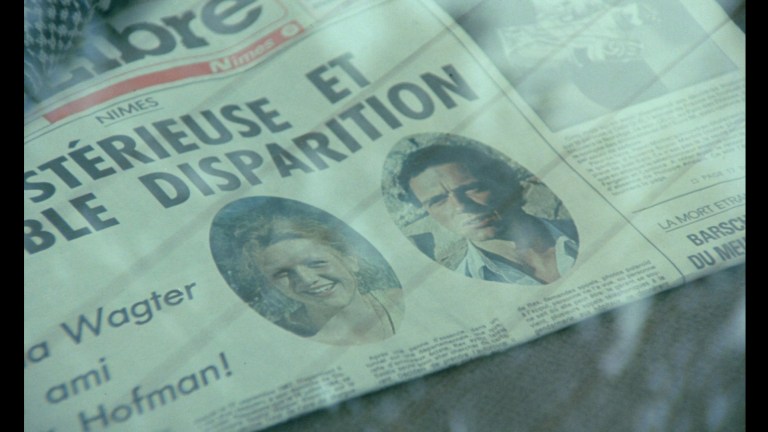
Raymond and Rex pull over at the rest stop where the kidnapping took place. Raymond says that he can’t just tell Rex what happened to Saskia, he has to show him. He has to experience exactly what she did. After much internal debate, Rex allows himself to be drugged. Rex wakes up buried in a coffin. Later, Raymond is at home with his family. His wife waters two bushes which are side by side in the yard. In the back of Raymond’s car is a newspaper with pictures of Saskia and Rex on the front page. The headline is about a “double disappearance.”
Keep Up with Creeptober!
- The entire list of 31 movies is here: Join Us for Creeptober: 31 Horror Movies in 31 Days
- Discuss on Facebook
- Even more on TikTok and Instagram
